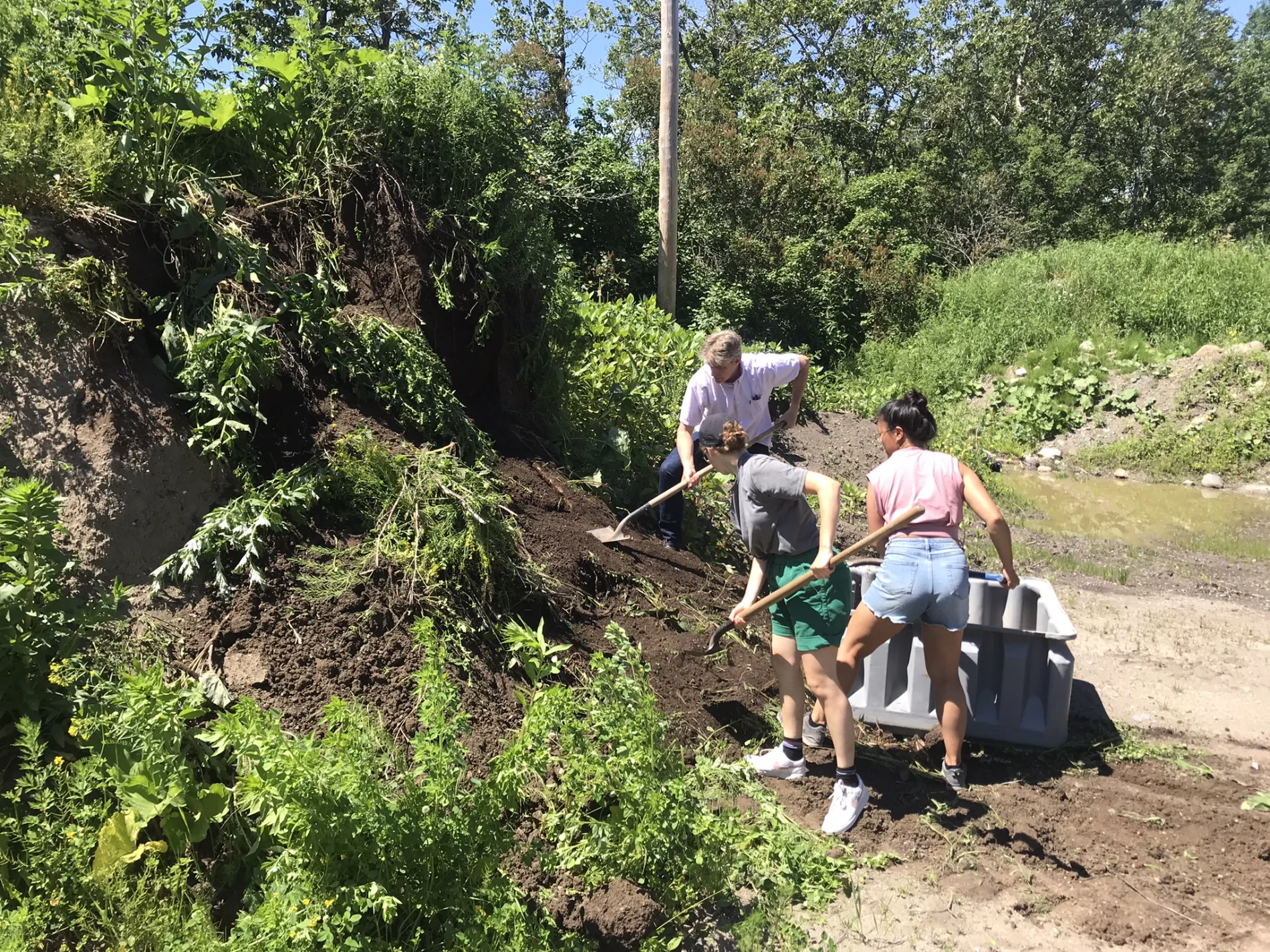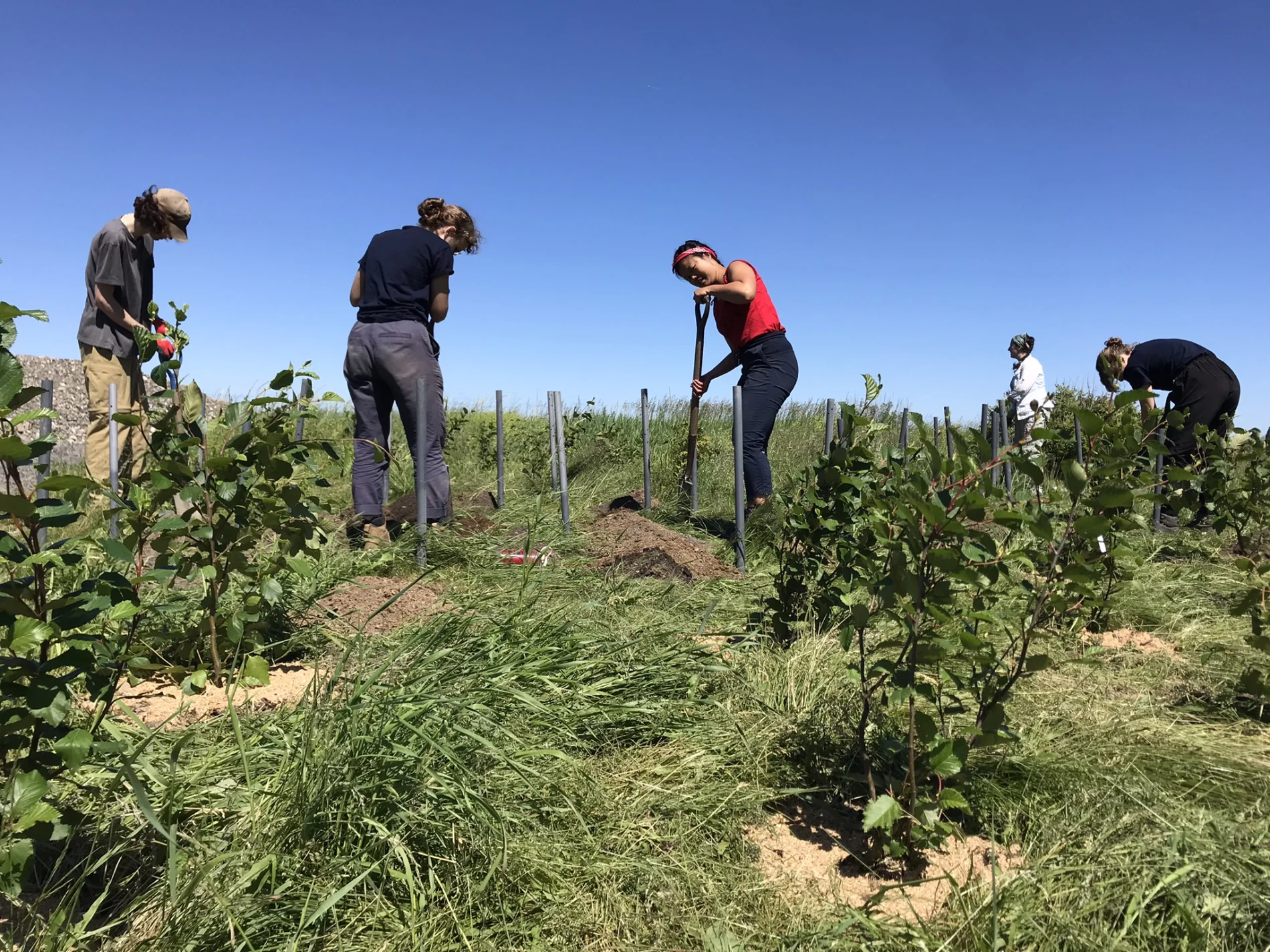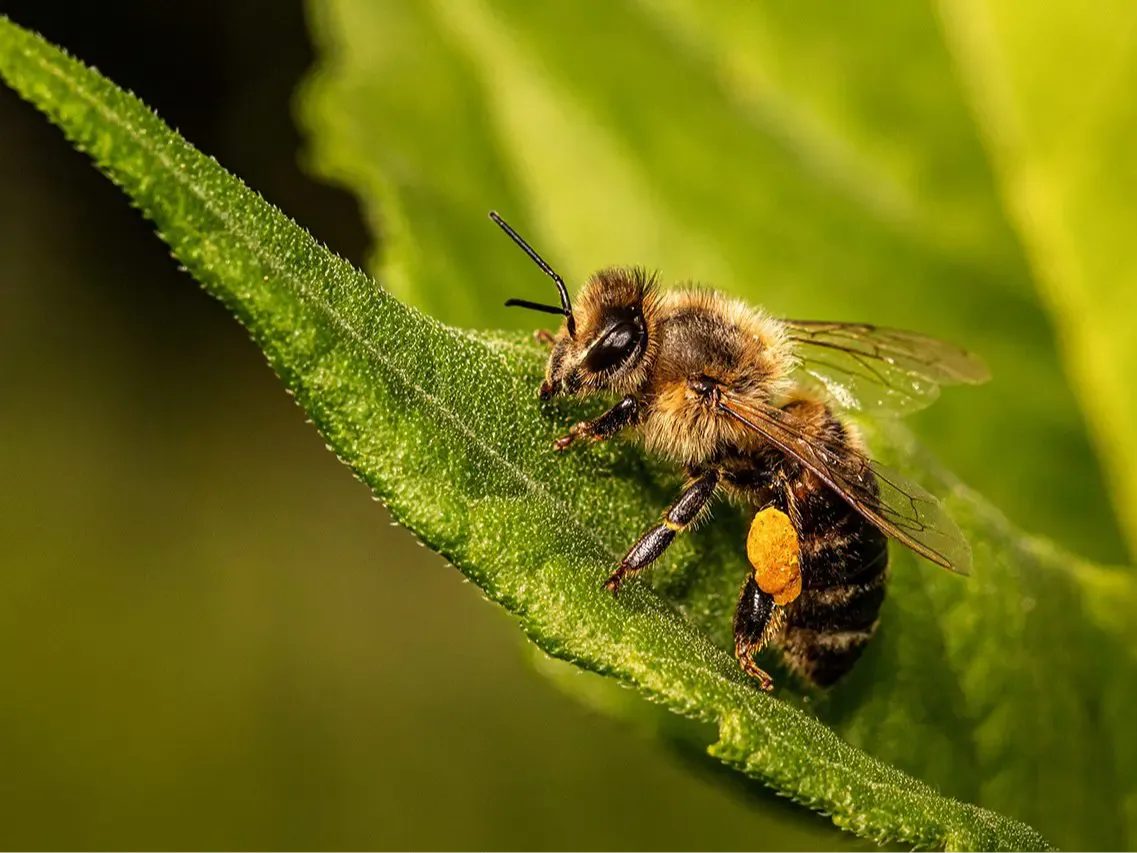
Sustainability
Fighting climate change with sea grass, spruce and smooth rose bushes
Nov 8, 2022
Residents of Sainte-Flavie, a coastal village in the Bas-Saint-Laurent region, are taking action to revitalize riverbanks hit hard by tidal flooding and erosion. With financial support from TELUS and FTQ, the Amis des Jardins de Métis are restoring public access to the river and finding sustainable solutions to our changing climate.
Alexander Reford, director of Les Amis des Jardins de Métis, still clearly remembers the tidal flooding that caused major damage to many coastal villages in the Bas-Saint-Laurent in December 2010. Over 40 homes were damaged along the river in Sainte-Flavie. At the Jardins de Métis, one of the northernmost gardens in North America and an iconic tourist destination in the region, Reford and his team filled six dump trucks to clear the debris, and even discovered that a work of art had been toppled over by the force of the waves.
“We knew there was going to be a storm, but we never thought we’d see the river unleash such an incredible destructive force,” he said.
In recent years, climate change has increased both the potential for riverbank erosion and the intensity and frequency of storms. Many coastal residents have decided to accept the government of Québec’s program and move from their seaside homes, leaving many sites vacant. Once very coveted, those sites have become orphans because of climate change.
Reford and his team decided it was high time to create something positive for the community.
The answer came from nature itself.
With help from the municipality of Sainte-Flavie, the Amis des Jardins de Métis initiated a pilot program with a bold plan to transform the region’s abandoned areas into dynamic public spaces, “while also taking action on the problem of erosion in coastal areas,” said Reford.

Volunteers prepping the area for planting
The goal is to plant gardens made up of native plant species as an environmentally friendly solution to riverbank erosion.
To date, volunteers have planted nearly 2,000 sea lyme grass plants along the riverbanks, as have dozens of quaking aspen, red osier and white spruce trees, smooth roses, and other species.
Strong digital policy is missing from Canada’s climate strategy, and presents an opportunity to lead on global climate action.
“Some plants can provide more protection than a concrete wall,” said Catherine Auger, the project manager in charge of this major revitalization effort, a McGill University graduate in architecture, and Harvard University masters student in landscape architecture.
“We want to adapt our projects to the landscape, not the other way around. We’ve added other local plants to the existing ones based on their root systems, their ability to adapt to seaside conditions, and their availability.”

Volunteers prepping the area for planting
A community approach
A number of financial partners have joined in the community’s sustainability efforts, including the Fonds de solidarité FTQ and TELUS, a tech company that has a long-term commitment to
ambitious sustainability goals
, including achieving carbon neutrality and zero waste by 2030. In the last two years, TELUS and the TELUS Friendly Future Foundation
gave close to $40,000 to Les Amis des Jardins de Métis to finance sustainability projects, including the shoreline revitalization project in Sainte-Flavie.Earlier this year, dozens of TELUS volunteers took part in coastal revitalization and cleanup activities in collaboration with the Amis des Jardins de Métis as part of the
TELUS Days of Giving
. The volunteers gardened and picked up garbage, to revitalize the shorelines and create a healthier planet for future generations.
Volunteers at the Jardins de Métis during the TELUS Days of Giving
Reford hopes this is just the beginning of volunteer efforts around the revitalized shore and garden project.
“We want residents to get actively involved with watering the plants, planting new areas, and cleaning up the site. Our goal with this new landscape is to give local residents access to the sea. It’s a big win for the region,” he said.
His organization’s ambitions don’t stop there. For the second phase of the project, the management team hopes to start planting edible species and creating similar gardens in other Bas-Saint-Laurent communities affected by climate change and coastal erosion, like Sainte-Flavie and Métis-sur-Mer. Local plants will also be used on future sites. Just like for the pilot project in Sainte-Flavie, the goal is to create public spaces where people can just walk around or have a picnic by the water.
“We’ve come up with a low-cost, low-effort solution that’s also environmentally friendly,” said Reford. “Our philosophy is about living with the river, not trying to fight it. It’s a great example of a project that can unite and mobilize our communities.”


